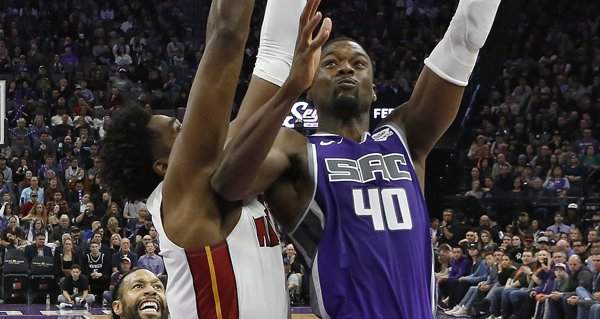Harrison Barnes has been a product for a long time, and he’s treated himself like one. When he came out of high school, the folks who try to figure out which all-time great a 17-year-old plays like compared him to Kobe Bryant. That was silly at the time, even when we didn’t yet know he wouldn’t be anything like Kobe, but Barnes understood it as more of a business opportunity than something Doug Gottlieb said because he had three hours of radio airtime to fill, because that’s the way he’s wired. Barnes turned his college signing announcement into a televised spectacle, a demi-Decision; he told the world he was going to North Carolina in a manner not dissimilar to the way Apple makes a big thing out of telling us they’ve built a slightly slimmer phone.
This more or less established the precedent for How Harrison Barnes Acts. He showed up to pre-draft interviews in young Republican garb: black slacks and a Carolina blue sweater. He informed reporters he was reading Don Quixote in Spanish. He browses TechCrunch and the Wall Street Journal. He says stuff like “I’m a big TV guy,” which is certainly not his phrase but seems like it was invented for him to say. Harrison Barnes is savvy, a man of substance, and he wants you to know it.
He’s self-aware enough to be insecure, never not selling something, but he lacks the perspective to understand this might be annoying or make him look like a dweeb. His career has been a mild failure, and somebody this not-great at basketball shouldn’t be working this hard to put you in a pair of sneakers. The effortful pitch didn’t land with Golden State, where he stood in the corner while Steph Curry cooked, and it didn’t totally land in Dallas either, where he was paid like an All-NBA candidate and played like circa 2009 Rudy Gay. This isn’t to say Barnes wasn’t productive in either setting, just limited and vaguely disappointing. He promised you the time of your life and gave you a family vacation in Myrtle Beach.
Barnes hasn’t been with the Sacramento Kings for long, and we don’t know how long he’ll stick around in the California capital, but this might be the first time he can actually deliver on his promise, in part because we now know not to expect too much. Since Barnes joined the Kings at the trade deadline, the team has gone 3-and-3, with two of those losses being two-point defeats against the Warriors and Nuggets. They’ve mostly looked great, and Barnes, despite a poor shooting streak that should reverse itself soon, has looked right at home.
The fit is impeccable. The Kings have spent the season beaming through that blissful phase in which a young team succeeds more than anyone thought they would, but being a pleasant surprise is definitionally unsustainable. After a while, your deficiencies get equal billing alongside all the stuff you do well, and one of the things the Kings desperately needed before the Barnes trade was some size on the wing. It’s hard to defend in the modern NBA with a lack of 6-foot-8-ish guys who can get a bucket or two on the other end. If Barnes is not a top-of-the-line model of that type of player, he is at least above-average. He can play either forward position. He can hit threes. He’s strong enough to bang with fours, quick enough to check bigger guards, and long enough to put a hand in Kevin Durant or Paul George’s face. All the tools that were supposed to make him great back when make him highly useful now that we’ve resigned ourselves to the fact he’s not a star. For the first time in his career, our ideas about what Harrison Barnes is capable of are correctly calibrated, and as a result, he has a chance to do some satisfying work for one of the most likable teams in the league. Not carrying them, not sending them into the stratosphere, but chipping in.
It’s always nice when an athlete lands somewhere new and you realize the situation is perfect for him. He can do what he’s good at and doesn’t have to struggle with what’s beyond him. It’s an opportunity to appreciate him anew. We perhaps saw too little of Barnes with the Warriors and definitely too much of him with the Mavericks. The Kings provide a space where he can operate at something like a happy medium, become the player he was meant to be rather than the one he and others have spent nearly a decade telling us he might become.
This is a relief. You can only sell dreams for so long, and Harrison Barnes has never been adept at doing so anyway, stinking of nonsense and smarm. The key to selling stuff is to not seem like you’re selling stuff, or failing that, to be so great that everyone forgives you for it. Barnes has never been able to overcome his own hype, or his bothersome propensity for building it. But the jig is just about up at this point. He’s 26. There aren’t many lies he can tell that people will believe. And so maybe this is the next, more palatable phase of his career, helping the young Kings reach the playoffs for the first time 13 seasons, there when you need him, resting pensively at the edge of the action when you don’t: the role of the reliable vet. This is not what Harrison Barnes had mapped out for himself a decade ago, but it is the best he can do, and it’s no small thing. He has always wanted to matter. Now he gets his chance to do so, at a scale he can handle. Finally, after years of hopeful noise, Barnes has real achievement within reach.



